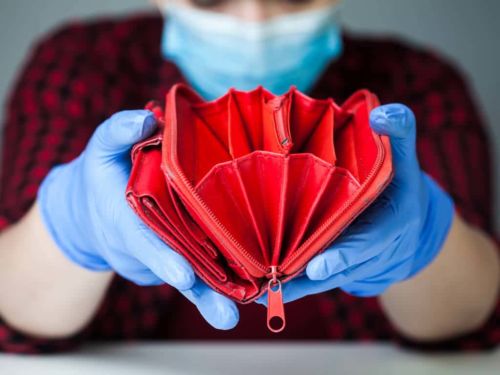Menu
Coronavirus Debt is Real. Here’s What You Need To Know
March 10th, 2021

Though we are not yet living in a post-coronavirus world, many parts of the nation are reopening as vaccinations become more widely available. However, for many families in Ohio and across the United States, COVID-19 has lead to income disparities resulting in debts that these families must now grapple with. If you are one of the millions of families facing coronavirus debts, here’s what you need to know.
Income was growing, but COVID-19 created mass job loss.
According to a study by NerdWallet, income had been growing faster than the cost of living, but because of coronavirus, progress has slowed. In fact, 63% of surveyed Americans said they felt their financial situation had worsened in the last year because they lost their job or the overall household income had decreased. Of those with increased financial difficulties, 45% reported taking on debt because of it while another 45% turned to taking money from their savings to pay for bills and necessities.Some U.S. families are doing better, but the majority are hurting.
In the same study, 1 in 7 Americans reported that their household financial situation had gotten better since the onset of the pandemic. However, the majority of Americans have not been so lucky. In conjunction with job loss, some debts have increased as a result of the COVID-19 pandemic. Debt such as mortgages, auto loans, and student loans have increased from 2019 to 2020. And while some types of debts have benefited from lower interest rates, most U.S. households are still carrying credit card debts with high balances. While the struggle to recover from COVID-19 is growing, there are options to get out of debt.COVID-19 Debt and Bankruptcy Options
For some families, the financial repercussions of coronavirus only triggered financial issues that already existed. But bankruptcy can be a valid option for many of these Ohio families. To qualify for bankruptcy, you must:- Be employed
- Provide two months of pay stubs
- Have a list of all debts
- Provide bank statements
- Explain lawsuits or other court papers
- Provide car titles
- Provide mortgage and deed paperwork
- Give a list of all your assets
Financial restart for those in Columbus and Central Ohio
We know that times are hard, and the last year has been extraordinarily difficult for families since COVID-19 took over our everyday life. You may be apprehensive to make any decisions right now, as COVID-19 has fed into much uncertainty and worry, but when you choose The Jones Law Firm, we will work with you to ensure your financial needs are met. If you live in Columbus or central Ohio and are considering bankruptcy, do not delay. Contact The Jones Law Firm today to schedule an appointment.Categories: General Bankruptcy



